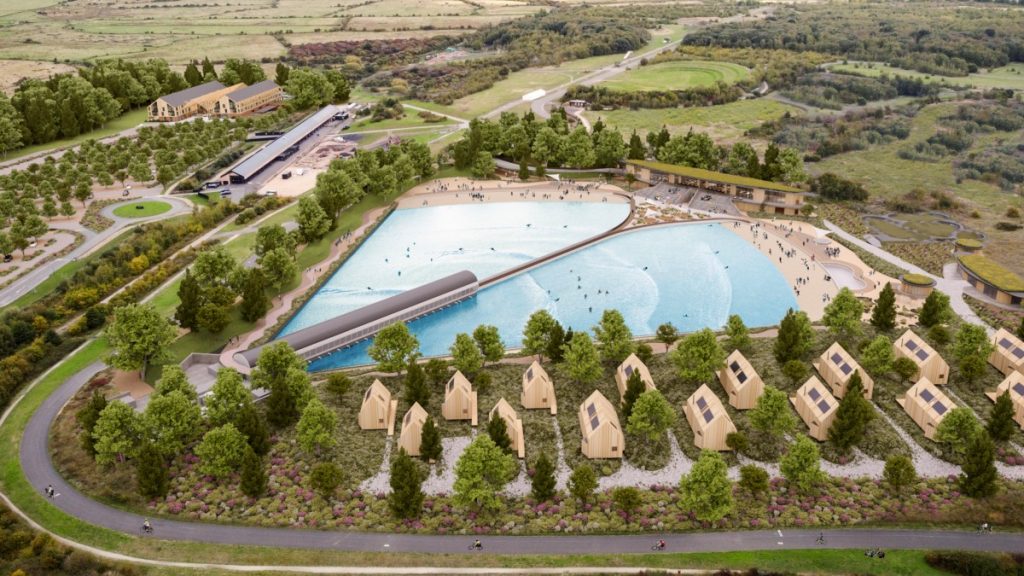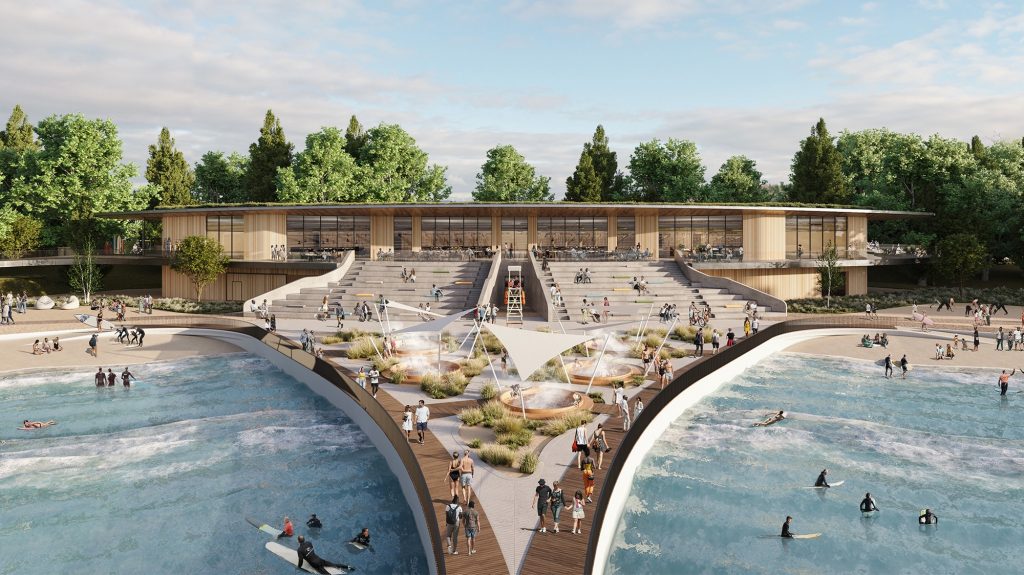From Coal to Kegs: Council in Southeast England greenlights Seahive wave pool project

Dover District Council’s planning committee has approved plans for the Seahive wave pool and a 120-room hotel on the site of a former coal mine in Kent. The application was given the green light on Thursday after the company revamped the design and modified the proposal following a previous denial of planning permission. In addition to the hotel, the proposed development would feature a spa, gym, and restaurant.
The proposed Seahive project faced opposition from the Kent Wildlife Trust and others over concerns about its potential impact on wildlife. Seahive stated that they intend to be an integral part of the wider Country Park and enhance the overall visitor experience. A spokesperson for Seahive stated that the revised plans include more open space for wildlife, with 20% of the park designated as a protected area inaccessible to people and pets.
Betteshanger Country Park is located on 231 acres of land near Deal, which was previously a spoil tip for the Betteshanger Colliery, the largest coal mine in Kent before its closure in 1989.

Ben Geering, the head of planning at the country park, highlighted that the proposal for the surf lagoon and hotel development only occupies 10% of the privately owned site. He also mentioned that the plans incorporate measures to safeguard both existing and newly introduced species in the area.
“This decision is a win for nature and a win for the community as it honors Kent’s mining heritage by securing Betteshanger Park’s future and will boost the district’s economy,” Gearing told the BBC.
As with La Quinta, Perth and several wave pool locations globally, opponents cited environmental and quality of neighborhood life issues.
Friends of Betteshanger Group member Sue Sullivan said wildlife at the former coal mine will suffer.
“The decision last night was a tragedy for nature and a tragedy for all those local people who use the park for enjoyment of its quiet green spaces,” Sullivan told the BBC.

For surf park optimists, the council decision signals a collective shift where communities view wave pools through a lens of benefits rather than as monuments to crass development. In this view, surf lagoons serve a community by anchoring social and environmental outreach programs while also enhancing local facilities with private funds.
The Support the Seahive Artificial Wave in Kent Facebook group has 1,100 members, many of whom celebrated the decision with social media posts.
“Absolutely incredible news the Seahive has been approved,” said member Jono Apps. “With 7 votes to 2 for the lagoon and the hotel, this is so exciting!”
The project is seen as a new beginning for an area that has struggled since the decline of the coal industry in the UK, with hopes that it will bring jobs and a sense of pride back to the community.
“It’s great to see a new beginning for an area that’s been sad and desolate for so long. It’ll bring jobs, and I think a sense of pride back to the area too. New tech and maybe new passions,” said Michael King, surfer and Kent County resident, when the project was announced.
From Coal to Coves: Former English industrial & mining towns turn to wave pools
Related Coverage
